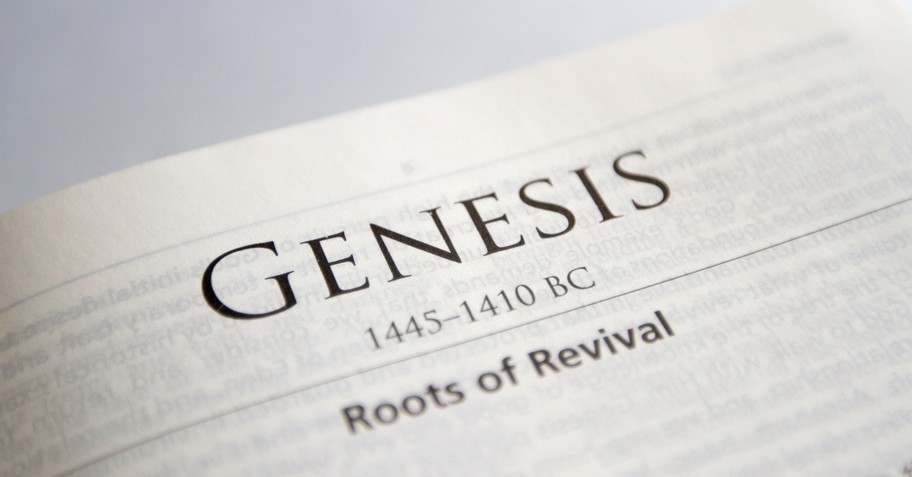Why Is It "Not Good for Man to Be Alone"?

The Bible paints a beautiful picture of creation, artfully and painstakingly handcrafted by God. In Genesis, we’re told how God made the heavens and the earth, formed man from the dust of the earth, and placed this precious, living creature in the Garden of Eden. God planted this garden in the east and filled it with magnificent trees and a massive, life-sustaining river, and intended for the man He’d formed to work the garden and care for it.
All of this was good—very good—all but one thing.
The man was alone.
Genesis 2:18 tells us, “The Lord God said, ‘It is not good for the man to be alone. I will make a helper suitable for him.’”
Why does God say it is not good for man to be alone in Genesis 2:18? No one can know the mind of the Lord, but a deeper look at context, God’s words, and God’s actions indicate a few things, from our inherent need for fellowship to the perfect balance achieved in the differences between two people coming together in the Lord as one flesh.
Photo credit: ©Getty Images/kieferpix

Why Does God Say It Is Not Good for Man to Be Alone?
The original Hebrew uses the words towb or tob, meaning “pleasing” or “good,” combined with lo, meaning “no” or “not,” as well as the Hebrew for alone, taken from the root word badad, which Strong’s Concordance defines as “to be separate, isolated.”
The original Hebrew indicates God was not pleased that the man was isolated and on his own.
The Hebrew word for good is the same word used throughout the first chapter of Genesis. God created a vast number of things—the land and seas, vegetation and fruit-bearing trees, day and night, birds and fish, animals, and mankind—then looked it all over and declared it “very good” (Genesis 1:31).
So here we see God is decidedly unpleased with this one thing: the separation and isolation of the solitary man.
He goes on to say He will make a helper suitable for him. The Hebrew used here for helper is ezer, from the root word azar, meaning helper, or one who provides help or relief. And the word for suitable is neged or kenegdo, which means in front of, in sight of, opposite to. Here, “suitable” seems to indicate a perfect opposite.
Note that helper does not mean subservient or inferior in any way—helper is used here much like saving assistance, perhaps a lifesaver. Indeed, the word is also used to describe the divine, saving assistance God Himself provides in Exodus 18:4, Deuteronomy 33:26, and elsewhere.
The verse means God didn’t like the man being alone, so He planned to make a perfect opposite, or balance, of the man to bring lifesaving, soul-quenching relief.
Photo credit: ©Getty Images/DGLimages

When Does God Say This?
What is important to understand is that this verse, and the whole chapter surrounding it, involves God’s creation of the world and its inhabitants. He has made these wonderful things, assessed them, then decided certain things—like man’s solitude—needed remedy.
Genesis 1 tells us how God created the heavens and the earth and finished His work in seven days, then rested in apparent contentment that His good work had been done. Genesis 2 appears to be a similar telling of this same creation story, but focusing more intently on the creation of human beings, where they were to live and what they were to do, the rules they were to follow in their new home, and the beautiful, God-designed symbiotic balance in the male-female dynamic.
After God expressed His displeasure at the man’s solitude and His intention to rectify this, Genesis 2 goes on to explain how no suitable helper was found from the birds and animals already roaming the earth. Indeed, every livestock, bird, and wild animal was brought before the man, and the man named each one. But none were man’s “perfect opposite.”
So God made woman from man—one flesh in two forms, perfectly complementing each other.
Genesis 2:21 tells how God put the man into a deep sleep, took one of the man’s ribs, and created woman from that piece of the man. They are two humans formed of the same body.
When God woke up the man and brought the woman to him, we’re told, “The man said, ‘This is now bone of my bones and flesh of my flesh; she shall be called ‘woman,’ for she was taken out of man.’ That is why a man leaves his father and mother and is united to his wife, and they become one flesh” (Genesis 2:23-24).
So we see that God’s perfect design for humanity is man and woman, living together as one flesh in two separate bodies, tending and caring for God’s garden, all in obedience to and relationship with the Lord. It’s a commentary on marriage, on relationship, and on the holy work we are all tasked to do.
Photo credit: ©SparrowStock

Is This Verse Just about Marriage?
In one sense, this verse is a strong picture of marriage. God designed man and woman to cling to each other in honor of their innate balance. Man balances out woman, and in return, woman balances out man.
But it’s also a picture of human relationships in general. God said it is “not good” for man to be alone. Sometimes, we have a spouse to share life with, and in that God-centered relationship we see His ideal plan for man and woman.
But sometimes our spouse has passed away, or we have not yet found the husband or wife God wishes us to marry. Sometimes we choose singleness so that we can focus on the Lord exclusively and not the additional dynamics of a marital relationship.
In that, it is helpful to look at the “suitable helper” concept in a context beyond just marriage.
For instance, we might have a close friend or coworker whose unique personality and gifts balance out our own. That balance is an asset.
On a baseball team, not everyone can be a pitcher. You also need a catcher, a batter, and a baseman. On a research team, not everyone can be the visionary. You need people to lead, encourage, correct, question, etc.
Difference is good. Balance is good. It makes us better and makes life more pleasurable.
Why Are Community and Relationships So Important to God?
We can seek balanced community in a number of ways: in the workplace, at church, in a neighborhood or town, in a family, at school, on a sports or work team, etc. The important thing to remember is to celebrate our differences, knowing we are not ideal on our own. The ideal comes in the balance among the differences, whether in a marriage or another relationship.
God made the world—the heavens and the earth, the sun and the stars, the land and the sea—but He didn’t stop there. Once the place was complete, He populated it with living creatures of all kinds. He could have made just one animal and stopped there, but He didn’t. The fact that He made so many different kinds of creatures indicates that He loves variety and plenty. He didn’t just make birds, fish, and land animals—He made many types of birds, fish and land animals, all different shapes, sizes, and colors. Even their sounds and smells are different.
He did the same with people. He created man, then woman. Then, throughout the Bible, He tasked us to be fruitful and multiply.
Being surrounded by life is pleasing, important, and “good” to God. In our efforts to model God, we should remember that.
Indeed, when asked what is the greatest commandment, Jesus replied that we are to “Love the Lord your God with all your heart and with all your soul and with all your mind” and to “love your neighbor as yourself” (Matthew 22:37-39).
Community is valuable to God.
Photo credit: ©Getty Images/fizkes

A Prayer for When You Are Feeling Alone
If you feel alone, take heart. God is with you, and He desires for you to be in relationship with other people. Whether you work together, serve together, worship together, or share life in a marriage relationship, a friendship, or other close tie, know that God desires for His people to draw close together in love for each other.
Dear Lord,
You know my heart and its desires. Help bring others into my life that help balance me out and make me better in my walk to become a person after Your own heart. Help me understand that with You I am never alone, and help me to open my heart to relationship with fellow Christian brothers and sisters as we worship and serve You now and for all eternity. In Your holy name I pray,
Amen.
So remember: Sometimes it’s nice to be alone with our thoughts and meditations, serving and loving the Lord with our unique skills and gifts. But with others, we can magnify the power of God’s love and do more for His Kingdom.
Related Resource: Gridiron Gospel: How an NFL Player Has Turned the Playing Field into a Mission Field
Playing professional sports on the biggest stage is the ultimate goal for most athletes. But not for NFL player Dalton Risner. Listen as the Minnesota Vikings offensive lineman shares with us how a humble upbringing in a rural town, surrounded by loving parents and many siblings, drew him closer to Jesus. For Dalton, the real victory is the loving marriage he shares with his wife, Whitney, and the work he pours into the non-profit he created to help kids in need, RisnerUp. Risner established his foundation based on 1 Peter 4:10, which also is tattooed on his forearm: "Each of you should use whatever gift you have received to serve others, as faithful stewards of God's grace in its various forms." Words to live by, indeed! Our prayer is that today’s conversation will remind you that no matter where you are, what you do, or what season you find yourself in, God has a special plan and purpose for your life, and He wants to use you right where He has you! Remember, God can do wonders with a willing and obedient heart! If you like what you hear, be sure to subscribe to The Built Different Podcast on Apple, Spotify or YouTube so you never miss an episode!
Related articles
10 Bible Verses and Scripture Verses to Read When You’re Lonely
Created for Community
7 Prayers for Loneliness for When You Feel Unseen
Photo credit: Unsplash/J Waye Covington
Originally published October 11, 2024.









